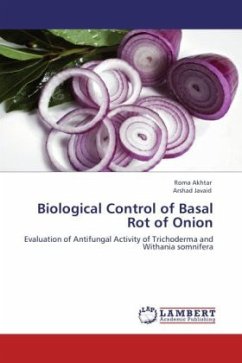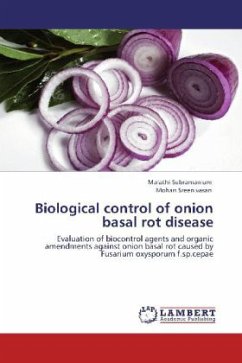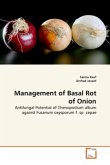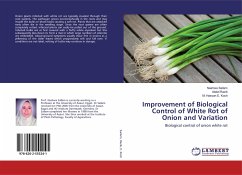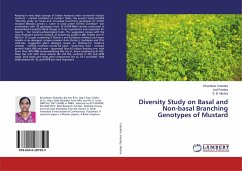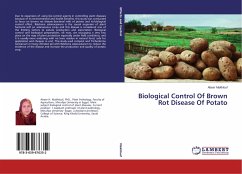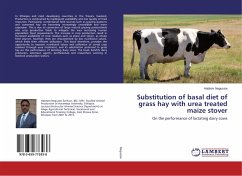Onion (Allium cepa L.), family Alliaceae, is the second most important horticulture crop all over the world. Basal plate rot disease of onion is caused by common soil fungus Fusarium oxysporum f. sp. cepae that severely deteriorates the produce. Chemical control of soil-borne pathogens provides certain degree of control but at the same time they have bad effects on environment. Therefore, in recent years biological control of plant pathogens has been considered as a potential alternative strategy. In the present study, antifungal activity of methanolic fruit, stem and root extracts of Withania somnifera was evaluated against F. oxysporum f. sp. cepae. Methanolic extracts of leaf and root were fractionated using four organic solvents i.e. n-hexane, chloroform, ethyl acetate and n-butanol. Chloroform and ethyl acetate fractions of methanolic root extract and ethyl acetate fraction of leaf extract showed highest antifungal activity against the target fungal pathogen. In pot trials, combined application of Trichoderma harzianum and W. somnifera leaf manure significantly reduced the incidence and severity of the basal plate rot of onion. This book is very useful for all those researcher

